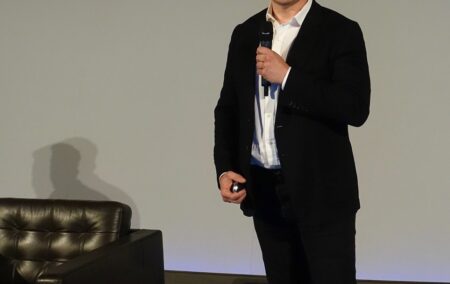Suppose that rather than racing to commercialise space tourism, Musk, Bezos and Branson were competing to create jobs in South Africa.
The term, ‘conspicuous consumption’, was coined by sociologist Thorstein Veblen to describe seemingly irrational displays of wealth. He argued that there were benefits to such flaunting and that extreme concentrations of wealth could serve the common good by accelerating advances.
While commercialising space tourism represents important progress, sharply reducing South Africa’s unemployment would immediately benefit far more people. Nowadays, a nation’s living standards are determined by the productivity of its workforce. Persistently high youth unemployment presages decades of economic weakness.
Imagine Musk, Bezos, and Branson competing for three years to create the most jobs in South Africa. Further envisage that the contest requires them to act anonymously and restricts their financial resources to, say, ten million dollars. They would have to rely on their abilities to identify opportunities and design solutions. We can’t imagine what they would do, but a few things can be reasonably presumed.
We can be highly confident that they would not frame the challenge within a South African context. Nor would their solutions be something that could have, and should have, been done in the ‘70s, or ‘90s or early this century. Rather than dwell on South Africa’s competitive disadvantages, they would freshly appraise the relevance of our would-be workers given unfolding global trends. A three-year time frame would probably force them to do so while leveraging what currently exists.
The roots of South Africa’s unemployment crisis are domestic. In barely a generation, the Asian approach to development has created over half a billion jobs by focusing on adding value within existing supply chains. The global economy is amazingly integrated and awash with capital looking for promising initiatives. The global supply of low-skilled labour has tightened rapidly. China is aggressively seeking to reverse how its workforce is contracting.
Few jobs
In sharp contrast to the Asian model, top South African companies like Investec, Discovery and Nandos expand internationally by replicating their South African business models, or – as with Woolworths – by purchasing foreign operations. Such international expansion strategies create few jobs in South Africa.
Bezos’ knowledge of global supply chains would seem to give him a massive advantage. Branson is older and more old school. Yet his marketing creativity could be ideal for packaging the warmth and humanness that could swiftly make large numbers of South Africans globally relevant through personalising existing products and services. While Musk is probably the boldest and perhaps the most creative of the three, it is his AI expertise that could give him a decisive edge.
Every country can absorb a certain volume of low-skilled labour. South Africa’s supply of low-skilled labour is extremely high relative to the economy’s capacity to absorb such workers. Conversely, in some countries the situation tilts in the opposite direction. Few countries are as out of balance as South Africa. However, it seems unlikely that any of the contestants could finagle a large-scale emigration scheme within three, or even ten, years.
Among today’s foremost trends, the work-from-home shift would seem particularly relevant. Global supply chains in service sectors could become far more broadly distributed than those in manufacturing, which have created hundreds of millions of jobs. Many service sector jobs now require quite modest investments in fixed assets.
Internationally outsourcing call-centres began in earnest a quarter century ago. A surge in internationally outsourcing business processing operations quickly followed. Connecting workers via the internet keeps getting easier and cheaper. Call centre colleagues need not be near each other, or in a call centre.
Connectivity has become more relevant than proximity. Facebook went public with no revenue model but two billion users. Early investors were confident such connectivity could be commercialised. Would tech billionaires not see South Africa’s challenges similarly?
Prohibitively expensive
Perhaps Branson could profitably reconceive call centres as tools to build brand loyalty through highly personalised service. Ideally, customers would sign-off from such calls feeling they had been warmly hugged. Some companies have pursued this path but it tends to be prohibitively expensive. Bezos might want to provide more human support for on-line shopping or offer far more personalisation options for gifts and other segments.
AI and machine learning are likely to be central to the next few waves of profound disruptions. The scope for AI and machine learning to upskill a poorly educated worker has already expanded massively. Such worker-productivity gains seem destined to exceed those achieved by assembly lines.
We can’t know what creative solutions the world’s most impactful entrepreneurs would design and implement for South Africa’s employment crisis. Though Veblen died nearly a century ago, he would not be surprised to learn that today’s most successful business people seek recognition through advancing space travel. Nor should we be surprised that they can commercialise it better than any government could.
Our unemployment crisis traces to government policy choices which are inward-focused and backward-facing. It must be solved by business people who see our legions of unemployed young adults not as victims to be compensated with grants, but rather as underutilised assets whose productive capacity can be profitably developed.
Each of the space junkie billionaires would identify unique paths. Yet all three would find ways for South Africa’s unemployed to add value to products and services destined for affluent consumers. We can be confident of this because it is an unavoidable requirement for rapidly creating a large number of jobs.
Satisfying this requirement doesn’t suit our policy makers’ political agenda – and that says a lot about why we are in this situation.
The views of the writer are not necessarily the views of the Daily Friend or the IRR
If you like what you have just read, support the Daily Friend


